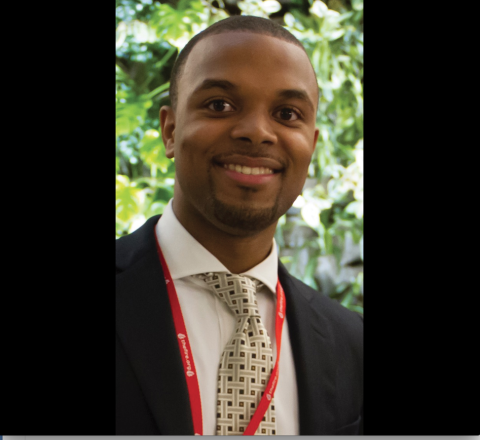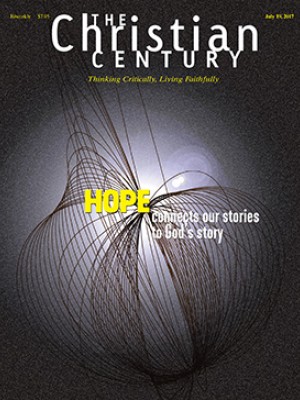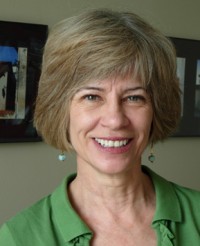Why Williams student Zachary Wood brings conservative speakers to campus
“College is arguably the best time and place for us to push our intellectual limits.”

Zachary Wood is president of Uncomfortable Learning, a student group at Williams College in Massachusetts that brings in speakers with an eye toward broadening the range of political discourse on campus. Speakers have included sociologist Charles Murray, National Review writer Jonah Goldberg, and economist Richard Vedder.
What led you to join Uncomfortable Learning?
In October of my freshman year, Uncomfortable Learning brought to campus Randall Kennedy, a professor at Harvard Law School, to discuss his book Nigger: The Strange Career of a Troublesome Word. At the event, I asked Kennedy a pointed question that caught the attention of Uncomfortable Learning’s leaders, and they later asked me to join the club.
Read our latest issue or browse back issues.
Why is a group like Uncomfortable Learning needed?
In many quarters, the state of inquiry on college campuses is limited, blinkered, and watered down. Many students are likely to read and reflect on the work of thinkers they’re inclined to agree with, to talk to and interact with like-minded peers and professors, to associate with groups that endorse or align philosophically with their beliefs. We’re not asking what matters most to the people we disagree with, and why. We’re not asking how brilliant people, with equal training and access to scholarly resources, arrive at drastically different conclusions about what is needed to address issues of racism, gender, and income inequality.
This needs to change, because college is arguably the best time and place for us to push our intellectual limits, to grow and learn in ways that can be uncomfortable, yet also immensely rewarding.
What do you hope to achieve?
I hope UL builds understanding, demonstrates that there is value in challenging the status quo, and prompts people to consider pressing issues in new ways. I hope that the speakers we bring to campus make people want to think about nuanced arguments, biases, and outlooks that often get overlooked. In that sense, my ultimate goal is to promote the rigorous thinking needed for my generation to tackle the many problems our world faces.
What kind of support do you get from professors?
I have three wonderful professors who understand how much I care about the life of the mind and appreciate knowledge for its practical and political value. Each of them has given me great advice and thoughtful feedback. And when I was the target of considerable backlash, their unyielding support meant a lot.
You experienced backlash when Uncomfortable Learning invited Suzanne Venker, coauthor of The Flipside of Feminism, to campus. What happened?
I created a Facebook event page for her talk, which was titled “The Flipside of Feminism.” A few minutes later, the backlash began with email and on social media. People I’d never met were accusing me of being a men’s rights activist, an antifeminist, a misogynist, a bigot, a xenophobe, a homophobe, and a terrible person. The insults and ad hominem attacks were overwhelming. Several students commented that I should be punished by the administration for inviting Venker. I expected criticism, even controversy, but the level of criticism I received was surprising.
The three Uncomfortable Learning leaders voted two to one to disinvite Venker. I was the one opposed. When the two other leaders quit due to the controversy, I reinvited Venker, but she declined.
How do you handle that kind of response?
I try to handle it the way President Obama does—to stay measured and thoughtful, discriminating and decisive. I make a concerted effort to reflect on any substantive feedback I receive. And I vigorously defend my work and my principles when it serves a purpose. But I try to avoid demeaning myself by entertaining baseless insults and character attacks.
Was there a speaker who made you uncomfortable?
Charles Murray’s appearance was challenging for me. I understood what his ideas about IQ represented, how they stemmed from a history of racist pseudoscience going all the way back to phrenology and physiognomy. I understood that many have used these findings to corroborate the fallacy that black people are genetically and culturally inferior. So it was not easy for me to bring Murray to campus, take him to dinner before the talk, and listen attentively to what he had to say. But I wanted to confront his ideas head on, give students an opportunity to expose the flaws in his argument, and help them better prepare themselves to engage with controversial ideas in the real world. His visit, overall, was a success.
Do you have a faith that informs your convictions?
I’m a Baptist. The Bible definitely informs my sense of what is right and wrong. It informs my sense of what it means to be a kind, compassionate, hard-working person. And it informs my sense of what it means to treat people as I would like to be treated.
How does being black affect your role in Uncomfortable Learning?
It makes it extremely difficult for critics to call me a racist. In certain settings, black students may be a bit more willing to at least hear me out. In that sense, being a black man makes some critics less hostile toward me than they would be if I were a white guy.
On the other hand, being a black man has led to some of my black critics calling me a sellout. It’s led them to question my blackness, to question my concern for and commitment to racial justice. That has been vexing at times, because I’ve always been deeply concerned about the pursuit of justice, particularly as it relates to black suffering and the African American experience.
Are there any speakers or topics that you think are off limits? For example, would you want someone who denies the Holocaust to speak on campus?
I think every citizen of our democracy has a right to speak so long as they are not articulating threats or directly inciting violence. However, believing in the First Amendment does not mean thinking that every opinion or perspective is of equal value or merit. For me to invite a speaker to campus, I would have to think that there is something to gain intellectually from engaging with that speaker, even if most of the evidence is stacked against them. I also try to select speakers on socially relevant issues that are widely debated. Charles Murray, for example, met both of those criteria.
As for someone who denied the Holocaust, I believe they have the right to speak on campus, but it is highly unlikely that I would invite such a speaker. For one thing, a considerable portion of the American electorate does not actively accept the validity of Holocaust denial, which makes it different from issues of racism and sexism. It is not a hotly contested topic that intersects with socially relevant issues. Also, evidence of the Holocaust is abounding and overwhelming.
Who’s scheduled to speak in 2017–2018?
Right now the lineup includes Jason Riley, Sam Harris, David French, and Arthur Brooks. I’m also interested in adding John McWhorter, Jonathan Haidt, and Joyce F. Benenson to the list.
What are your plans for the future?
I’ve dreamed of attending Harvard Law School since eighth grade. If I am fortunate enough to be admitted, I’d definitely do my best to earn a spot as an editor of the Harvard Law Review. After that, I’d like to practice family law and eventually pursue a career in public service. Ultimately, I’d like to run for president.
A version of this article appears in the July 19 print edition under the title “Inviting controversy.”







